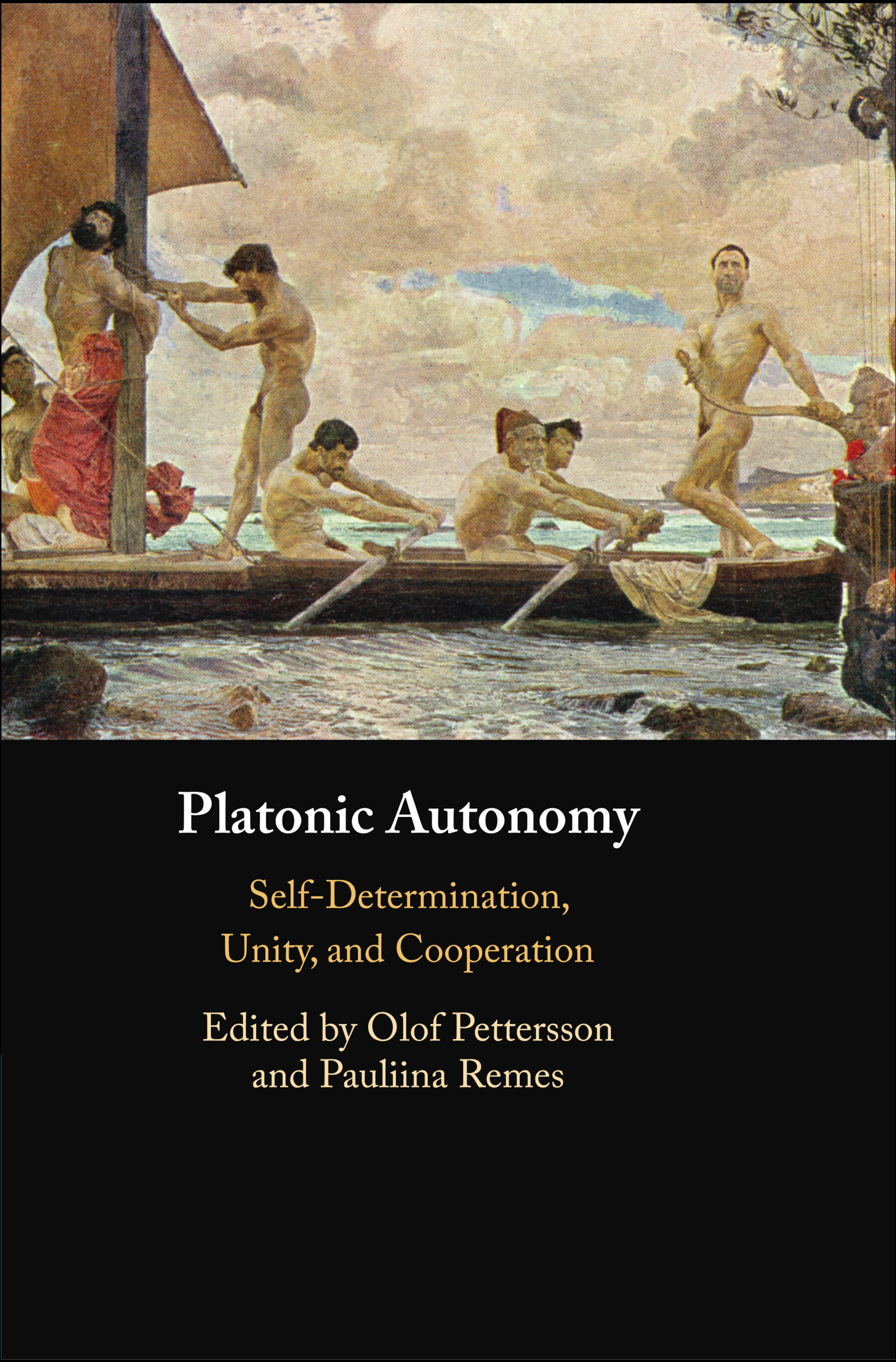Fresh from the press: Platonic Autonomy: Self-Determination, Unity, and Cooperation, edited by Olof Pettersson (together with Pauliina Remes) was just published by Cambridge University Press.
The volume highlights Plato’s relevance for the notion of personal autonomy, offers discussions of self-legislation, self-determination, self-rule, law, preference, and freedom from a wide range of perspectives, and includes an important chapter on “Self-Government and Law in the Crito and the Statesman” by Charlotta Weigelt. Together the essays of the volume show how deeply these concepts are intertwined with Plato’s more familiar inquiries into knowledge, moral psychology, ethics, politics, and metaphysics. The book also reveals how some of the Platonic worries about self- and other-determination become interpreted and given explicit expression by the Neoplatonists. Many chapters question an exclusively individualistic account of autonomy. The autonomous subject, for Plato, is not primarily the possessor of individual preferences, nor someone with a personally unique take on the world, but, rather, a unified agent who in both collaborative and personal activities originates her own motions and reasons and commits in a profound sense to her own actions. It is this understanding of personal autonomy we label Platonic.
Read more here.

